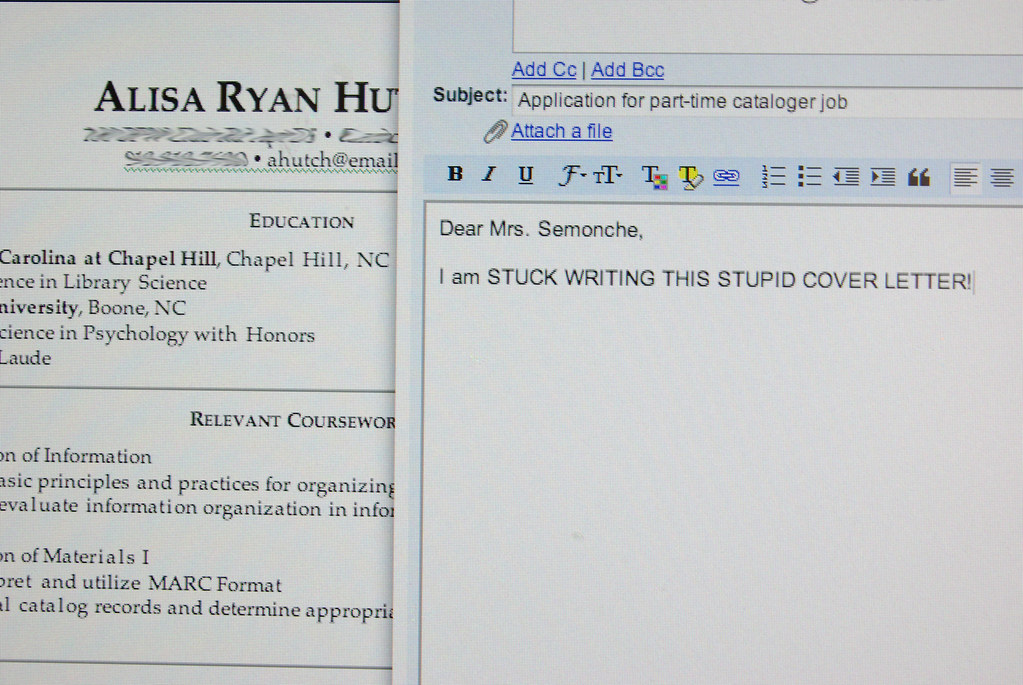
Are you struggling to write a job application letter? Are you unsure of what to include or how to structure it?
You’re not alone. Many job seekers find this task daunting and are often unsure of how to make their application stand out from the crowd.
The purpose of a job application letter is simple – it’s your opportunity to introduce yourself and showcase your skills, experience, and achievements. It’s your chance to convince the employer that you are the best fit for the position they are offering.
A well-written job application letter is crucial because it can be the deciding factor in whether or not you get invited for an interview. It’s important that your letter is persuasive, concise, and gives the employer a clear idea of who you are and what you can offer.
Table of Contents
The Purpose of a Job Application Letter

The primary purpose of a job application letter is to secure an interview. Your letter should grab the employer’s attention immediately and persuade them that you’re worth inviting in for further discussion. Your application should showcase why you’re qualified for the position.
It should also demonstrate why you’re interested in working for this specific company – rather than just any company with an opening. Your goal is not only to show that you have all the necessary qualifications but also to highlight how your skills match up with what they’re looking for in an ideal candidate.
A job application letter is more than just another item on your checklist – it’s your opportunity to make yourself stand out from other applicants. Therefore, taking some time on crafting it will pay off big time when it comes time for consideration.
Why Writing A Good Job Application Will Get You Hired

Employers receive hundreds – if not thousands – of applications every time they open a position. So it’s crucial that your job application letter is clear, concise, and to the point. A well-written letter will help ensure that your application is not only considered but also stands out from the rest.
A good job application letter shows that you have taken the time to research the company and understand their values and culture. It also demonstrates that you have tailored your application to fit their specific requirements.
Moreover, submitting an excellent application indicates that you are genuinely interested in the position and committed to securing employment with this particular company. This level of effort can go a long way in impressing employers and demonstrating professionalism.
It’s important to remember that first impressions matter. A well-written job application letter is an opportunity for you to make a positive impression on potential employers before they even meet you face-to-face.
Beating The Competition By Writing An Outstanding Job Application Letter

Your job application letter is one of many. To stand out from others who want the same position, you need to make sure yours is outstanding by showcasing not only your skills, but also what makes you unique. One way to do this is by highlighting any relevant accomplishments or experiences in your cover letter.
For instance, did you receive an award in college for leadership or community service? Did you intern at a highly regarded company within your field?
These accomplishments demonstrate not only what makes you unique but also why those qualities would be beneficial for an employer seeking someone like yourself. Another way to stand out from the competition is by taking time crafting each sentence in your cover letter carefully – ensuring each word counts towards making yourself more marketable as a candidate for this specific position.
Writing an outstanding job application takes some effort on your part but will pay off when it comes time for consideration. By showcasing what makes you unique and tailoring each sentence towards making yourself more marketable as a candidate, potential employers will take notice of your application and consider it more seriously than others.
Pre-Writing Writing a job application letter
Pre-Writing Writing a job application letter is not just about expressing your interest in a position; it also involves demonstrating how you are an ideal fit for the job. Before you start writing, take some time to research the company and position you are applying for.
This will allow you to determine your qualifications and skills that match the job requirements.
Researching the Company
Researching the company is crucial to understand what they do, their values and culture, their goals, and their target audience. You can visit their website or social media pages to learn more about them.
You can also read news articles or press releases about the company. By researching the company, you will be able to tailor your letter accordingly.
For instance, if you find out that they value teamwork, then mention how working collaboratively has been one of your strengths in previous roles.
The Position You Are Applying For
To write an effective job application letter, it’s essential to understand what the position entails. Go through the job description carefully, highlighting all of its duties and responsibilities.
This will help you identify which skills are necessary for this particular role. As you read through each requirement in the job description, try to think of examples from your past work experience that demonstrate your ability to fulfill these responsibilities effectively.
By doing so, when writing your application letter later on, it’ll be easier for you to show how qualified of a candidate you actually are.
Matching Your Qualifications with Job Requirements
Now that you have information about both the company culture/mission and job duties as outlined in its description let’s move on towards matching our own qualifications with their requirements. Make a list of all relevant experiences and achievements from your past positions that align with what’s required in this role as mentioned above along with any additional criteria such as education level etc mentioned by them.
For example: If they require someone who is proficient in Microsoft Office programs such as Excel, Word, and PowerPoint, you should mention your skills in these areas. If they are looking for someone with customer service experience, then talk about any prior positions you held that required interacting with customers.
By matching your qualifications to the job requirements in your application letter, you will show the hiring manager that you have done your due diligence and are a good fit for the position. Doing this will put you ahead of candidates who do not take the time to thoroughly analyze the job description and company culture.
By doing proper pre-writing research for a job application letter will lead to understanding their needs better and how we can tailor our skills and experiences accordingly. It will also show how interested we are in applying for this role which ultimately increases our chances of landing an interview call.
Writing the Letter

A Strong Opening Sentence
The first sentence of your job application letter is like a first impression. You want to grab the attention of the hiring manager and make them want to read on. A strong opening sentence should be attention-grabbing, yet professional.
You could start with a quote or a thought-provoking question that relates to the position you’re applying for. Alternatively, you could share a relevant personal anecdote that showcases your skills and personality.
Introduce Yourself and State Your Purpose for Writing
After your opening sentence, you’ll want to introduce yourself in a professional manner. State your name, where you heard about the job opening, and why you’re interested in it. Be sure to mention the title of the position and any relevant information about how it ties into your career goals.
Your purpose for writing should also be clearly stated in this section. Whether it’s to apply for an advertised position or inquire about potential job openings, make sure that your purpose is easy to understand from the outset.
Highlight Your Relevant Skills and Experience
This section is where you get to shine by highlighting your relevant skills and experience. Take some time before writing this section to review both the job description (if available) and your own resume. Make sure that what you include in this section aligns with what they are looking for in their ideal candidate.
Use active verbs when describing past experiences, as this can help show initiative and demonstrate qualities such as leadership or teamwork. If possible, try quantifying achievements using metrics such as percentages or dollar amounts – this can help give concrete evidence of what you’ve accomplished in previous roles.
Explain Why You Are Interested In The Position And Company
Employers want candidates who are passionate about their work – so take this opportunity to demonstrate why you are excited about the company and the job you’re applying for. Research the company culture, values, and mission statement to show that you’ve taken an interest in what they stand for. Think about what specifically appeals to you about this job – is it the opportunity to take on new challenges?
The chance to work with a dynamic team? Be specific in your explanation so that the hiring manager knows exactly what excites you about this particular position.
Close With a Call To Action
Don’t forget to close your job application letter with a call to action. This could be as simple as thanking the hiring manager for their time and consideration, or it could be more proactive – such as asking for an interview or offering to follow up at a later date.
Be sure to include all relevant contact information at the end of your letter, including phone number and email address. This will ensure that they can reach out if they have any questions or want to schedule an interview.
By following these steps and taking your time to craft a well-written job application letter, you’ll be one step closer towards landing your dream job. Remember – first impressions matter, so make sure yours counts!
Formatting

Use Proper Business Letter Format
When writing a job application letter, it is important to use the correct format. This means using a standard business letter format, with the date and recipient’s address at the top, followed by your own address and salutation.
The body of the letter should be divided into paragraphs, with a clear introduction, middle section highlighting your qualifications and skills, and a closing paragraph that includes a call to action. Make sure to proofread your letter for any typos or errors before sending it off.
Keep It Concise, One Page Maximum
When applying for a job, you want to make sure that your application stands out from the others. However, this does not mean that you should include every detail about yourself in your application letter. In fact, most employers prefer candidates who can convey their qualifications and skills in a concise manner.
Therefore, it is best to keep your job application letter to one page maximum. This forces you to prioritize which information is most important and make every word count.
Use Professional Language
The language you use in your job application letter can have an impact on how you are perceived by potential employers. Using professional language shows that you take the job seriously and are committed to presenting yourself in a professional manner.
Avoid using slang or overly casual language in your application as this may come across as unprofessional or disrespectful. When it comes to formatting your job application letter, consider using bullet points or numbered lists where appropriate.
This helps break up text and makes it easier for the reader to scan through important information quickly. Additionally, pay attention to details such as font size and style.
Stick with standard fonts such as Times New Roman or Arial in 10-12 point size for easy reading. Don’t forget about white space!
Use proper margins and spacing to make your letter look clean and organized. A cluttered or messy-looking letter can be off-putting to potential employers.
Formatting is an important aspect of writing a job application letter. By using proper business letter format, keeping it concise, and using professional language, you can ensure that your application stands out from the rest in a positive way.
Proofreading: The Importance of Checking for Errors When it comes to writing a job application letter, it’s essential to take the time to proofread your work.
Proofreading ensures that your letter is free of grammatical and spelling errors, which can make a big difference when it comes to the hiring process. After all, if you can’t take the time to proofread your letter, how can an employer trust you to be diligent in other aspects of your work?
One way to proofread effectively is by checking for spelling mistakes. While spell check functions can catch many errors, they are not always reliable.
It’s important to carefully read through your letter yourself and have someone else look at it for any spelling mistakes you may have missed. Additionally, grammar plays an important role in the clarity and professionalism of your letter.
Poor grammar can be distracting and make it difficult for an employer to understand what you’re trying to say. Take the time to review basic grammar rules or even consider using online tools like Grammarly or ProWritingAid.
Reading Your Letter Aloud Another useful proofreading tip is reading your letter aloud.
This technique allows you to hear any awkward phrasing or mistakes that may not be apparent when reading silently. It also gives you a chance to gauge the overall flow and tone of your writing.
When reading aloud, pay attention to how each sentence sounds and consider if there are any areas where you stumble over words or phrasing. These moments may indicate areas where revisions are necessary.
Additionally, try varying the pace at which you read through your letter. By changing up the tempo, you’ll get a sense of how well each sentence flows together.
Getting Feedback from Others Don’t hesitate to ask friends or family members for feedback on your job application letter before submitting it.
Having another set of eyes on your work can help uncover any errors or inconsistencies that you might have missed on your own. When asking for feedback, be sure to provide specific questions or areas of concern.
For example, you might ask a friend to focus on grammar and spelling, or to pay attention to the tone and flow of your writing.
Proofreading is an essential step in the job application process. By taking the time to double-check your work, you can ensure that your letter is professional and error-free.
Whether looking for spelling mistakes, reading your letter aloud or getting feedback from others, there are several techniques you can use to ensure that your letter is up to par. Remember – a well-polished application letter demonstrates not only your competence but also your attention to detail and commitment to excellence.
Follow-up: The Importance of a Thank You Email
You’ve researched the company and carefully crafted a well-written job application letter. You’ve hit that submit button and now you’re left waiting to hear back from the hiring manager.
But what comes next? Waiting for a response can be nerve-wracking but don’t let fear hold you back from taking the initiative to follow up.
One of the best ways to follow up after submitting your job application is by sending a thank you email. This shows that you are proactive, appreciative, and genuinely interested in the position.
Your potential employer will appreciate this gesture, as it indicates that you have put forth extra effort into your application process. A thank you email should be sent within 24-48 hours of submitting your application.
Keep it short, simple but make sure to express gratitude for their time and consideration. Be sure to include specific details about why you are excited about this opportunity and how it aligns with your professional goals.
Following Up After No Response
It’s not uncommon for employers to take some time before getting back in touch with applicants after they’ve submitted their applications. However, if several weeks have gone by without any word from the hiring manager, don’t hesitate to follow up once again. If possible try reaching out via phone or email within a week or two of submitting your application asking for an update on the status of your candidacy and reiterating your interest in the position.
During this call or email, it’s essential to maintain professionalism while also demonstrating enthusiasm about the role. When following up remember that persistence is key, but make sure not to become too pushy or demanding as this may negatively affect your chances of getting hired.
Tips on Following Up
When crafting an email following-up on an application never forget these few things.
- Keep it short, simple and to the point.
- Always express your appreciation for their time and consideration of your application.
- Be positive and enthusiastic about the role.
- Include any additional information you may have that could sway their decision in your favor.
- If you are following up via email, make sure to format it properly with a proper salutation, body, and signature.
By following these tips, you can show that you are an active candidate who is genuinely interested in the position.
The Importance of Timing
When following up after submitting a job application it’s essential to keep track of timing. You don’t want to come across as too pushy or desperate by following up too soon or too frequently.
Sending a thank you email within 24-48 hours of submitting your application shows professionalism while making a great impression on the hiring manager. If several weeks have gone by without hearing back from the employer feel free to follow-up once again via phone or email within a week or two.
This demonstrates that you’re still interested in the position while also being mindful of their time. Remember to be patient and understanding when waiting for responses as hiring managers often receive numerous resumes daily.
Keeping track of timing is crucial when following up without coming off as bothersome.
Going Above And Beyond Matters!
Writing an excellent job application letter is just one part of getting noticed by potential employers—but taking extra steps like sending thank-you notes shows initiative and effort above what most applicants offer. Following up after submitting job applications demonstrate genuine interest in the position while also showing respect for their time —this alone can give candidates an edge over others who don’t take these extra steps.
Remember never hesitate to ask for feedback if possible as this can help improve your chances if you decide to apply elsewhere. So always remember, going above and beyond matters more than anything else when trying to land that dream job.
FAQs
How do I write my first job application letter?
o write your first job application letter, begin with a professional greeting and introduce yourself. Mention the specific position you are applying for and briefly highlight your relevant skills, education, and any relevant experiences. Conclude the letter by expressing your interest in the job and your availability for an interview.
What is an application letter for a job?
An application letter for a job is a formal document submitted by a job seeker to express their interest in a specific position within an organization. It typically includes information about the applicant’s qualifications, skills, and experiences that make them suitable for the job. The purpose of the application letter is to persuade the employer to consider the applicant for an interview.
How do you write a job application sentence?
When writing a job application sentence, focus on conciseness and clarity. Begin with a strong and attention-grabbing statement about your qualifications or experiences relevant to the job. Follow it up with supporting details or examples to demonstrate your capabilities, and end the sentence by expressing your enthusiasm for the opportunity to contribute to the organization’s success.
How do you write a simple message for a job application?
When crafting a simple message for a job application, keep it brief and to the point. Start by introducing yourself and mentioning the specific position you are interested in. Highlight your relevant skills or experiences briefly, and conclude by expressing your enthusiasm for the job and your willingness to provide any further information or documents upon request.
How do I write a job application with no experience?
To write a job application with no experience, focus on highlighting your transferable skills, education, volunteer work, or relevant coursework. Emphasize your willingness to learn and grow in the role, and showcase any achievements or personal qualities that make you a suitable candidate. Consider including a strong cover letter that demonstrates your passion and motivation for the job.
How is a job letter written?
A job letter is typically written in a formal format and follows a specific structure. It begins with the sender’s and recipient’s contact information, followed by a professional greeting and an introduction that states the purpose of the letter. The body of the letter includes the applicant’s qualifications, experiences, and reasons for applying, and it concludes with a polite closing and the sender’s signature.
What is job application in simple words?
In simple words, a job application is a formal request made by an individual to be considered for employment in a specific position within an organization. It is a document that outlines the applicant’s qualifications, skills, and experiences relevant to the job, and it serves as an introduction to the employer to express the applicant’s interest in the position.
Is a job application letter formal?
Yes, a job application letter is generally considered formal. It should adhere to professional standards and use a polite and respectful tone. The letter should be well-structured, free of grammar or spelling errors, and follow a formal format. It is important to maintain a professional tone throughout the letter to make a positive impression on the employer.
Do I need to write a job application letter?
Whether or not you need to write a job application letter depends on the specific requirements of the job application process. In many cases, a job application letter is requested by employers to assess the qualifications and suitability of applicants. Even if it is not explicitly required, submitting a well-crafted job application letter can enhance your chances of standing out as a candidate.
What is a short application letter?
A short application letter is a concise and focused document that highlights the most relevant qualifications and experiences of the applicant. It is typically one page or less in length and provides a brief overview of the applicant’s skills, education, and motivations for applying. Despite its brevity, a short application letter should still be well-written, structured, and customized to the specific job.
Conclusion
Congratulations! You have successfully written a job application letter that will make you stand out from the competition.
However, there are still a few things you should keep in mind before submitting your application. Reiterate your interest in the position: In the closing paragraph, restate your enthusiasm for the job and how it aligns with your career goals.
This shows that you have carefully considered the position and are genuinely interested in it. Thank them for considering your application: Express gratitude to the employer for taking the time to read your application.
Even if you don’t get hired, showing appreciation reflects positively on you as a candidate. Provide contact information if needed: Make sure to include appropriate contact information, such as an email address or phone number where you can be reached.
Overall tips: Be confident but humble, personalize each letter to the specific: Remember to strike a balance between confidence and humility throughout your letter. Additionally, take time to tailor each letter to each company and job posting.
This shows that you have taken effort into researching their needs and are serious about being considered for the position. Crafting a great job application letter takes time and effort but can ultimately pay off in landing an interview or even getting hired.
By following these guidelines, including personalizing each letter and being confident but humble about yourself and qualifications as well as expressing gratitude towards employers’ consideration guarantees an impressive presentation of yourself along with making them feel good about themselves too! Best of luck on your job search!






